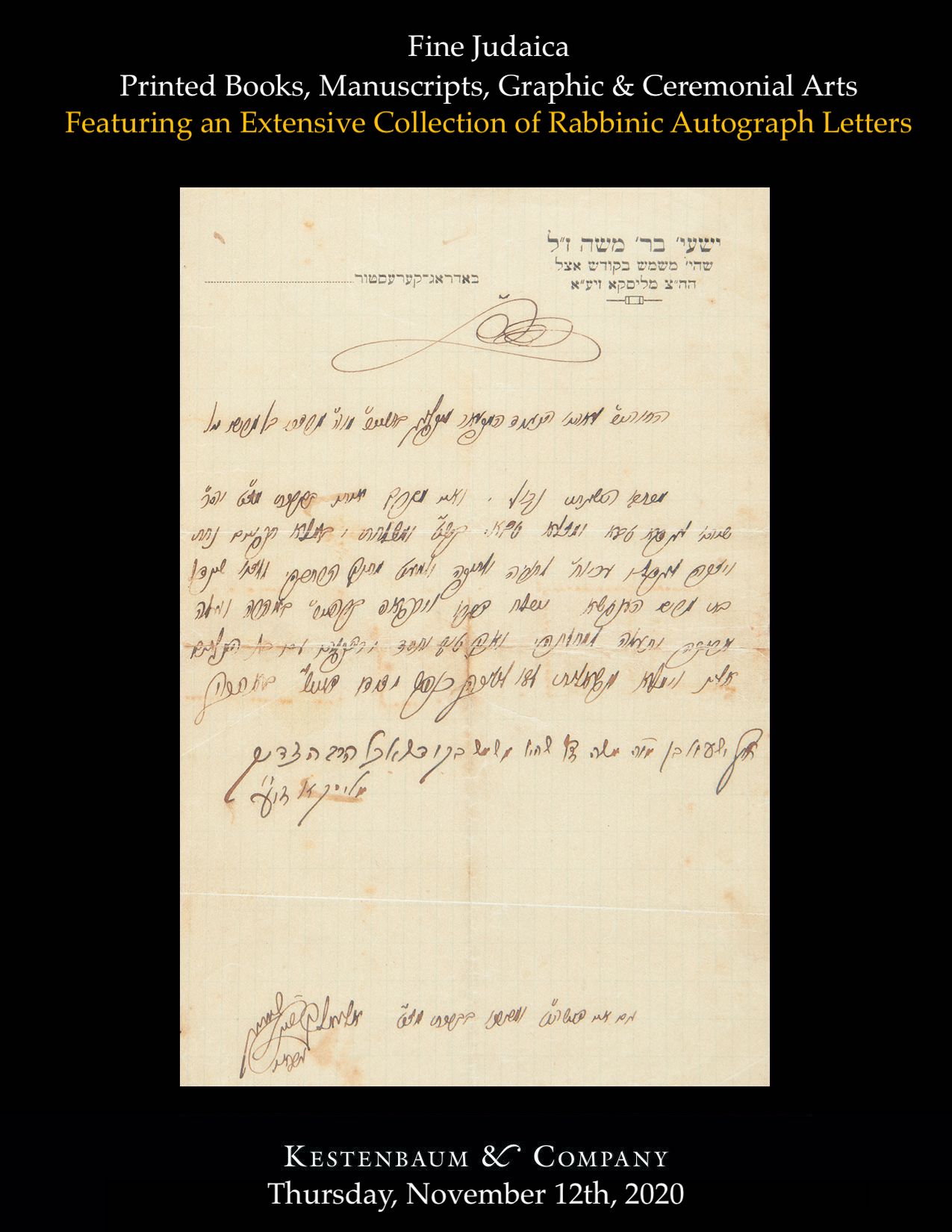Tophteh Aruch [dramatic poem on the affliction of the soul in hell].

Auction 91 |
Thursday, November 12th,
2020 at 1:00pm
Fine Judaica: Printed Books, Manuscripts, Graphic & Ceremonial Arts Featuring an Extensive Collection of Rabbinic Autograph Letters.
Lot 193
ZACUTO, MOSHE.
Tophteh Aruch [dramatic poem on the affliction of the soul in hell].
Metz: Gottschlick-Speyer 1777
Est: $300 - $500
PRICE REALIZED $300
Born in Amsterdam in 1625, Kabbalist Moses Zacuto, also known as the “ReMeZ,” was a student of R. Saul Levi Morteira and fellow student of Benedict Spinoza. He studied Kabbalah with Benjamin HaLevi, a student of R. Chaim Vital. He later traveled to Posen to further his Talmud learning. Although intending to make a pilgrimage to Palestine, Zacuto instead accepted a rabbinical post in Venice, and in 1673, was appointed rabbi of Mantua where he remained until his death in 1697.
When he lived in Italy, Zacuto wrote his great dramatic poem, Tofteh Aruch. It appears that this work was inspired by Dante's Divine Comedy, as the subject matter is the afflictions of the soul in hell. In the opening verses, the dead man recounts his last illness and the arrangements for his burial. Afterward follows the episode of Chibath HaKever ("tribulations in the grave"). The angel Duna commences the judgment and trial and with the aid of his fellow angels, drags the dead man through the seven sections of hell, showing the terrible punishments suffered by sinners. The conclusion is a description of the difference between the fate of sinners and that of the righteous, closing with the angel and the dead man praising God as the true Judge.
The poem consists of 185 rhymed stanzas of five verses each. The author employs many homonyms, assonances, and word plays. The work attained great popularity.
See https://www.encyclopedia.com/religion/encyclopedias-almanacs-transcripts-and-maps/zacuto-moses-ben-mordecai.
